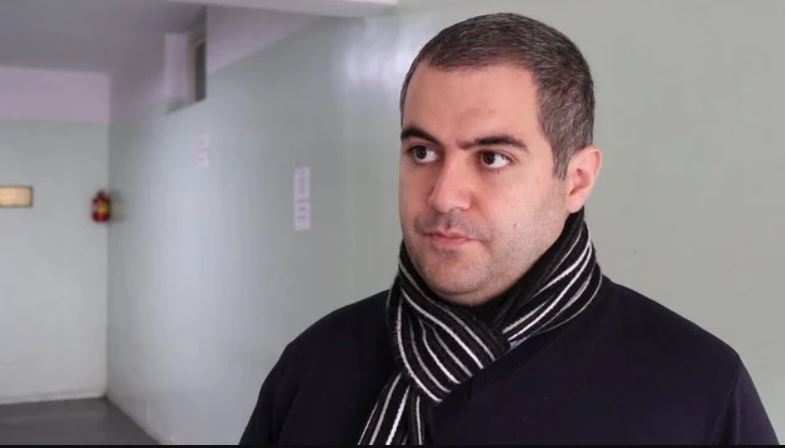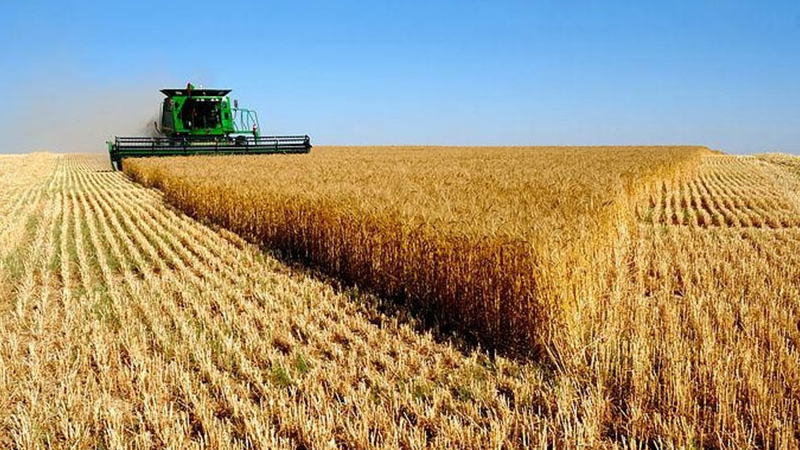The Russian Federation has imposed a ban on the export of grain and sugar to the EEU countries until August 31 of this year. After this official news was spread yesterday, the citizens of the Republic of Armenia, it can be said, were panic buying a lot of oil, sugar, flour, pasta, and other similar products.
The panic is mainly conditioned by the fact that the grain imported to Armenia is mainly from Russia. In general, the Russian-Ukrainian war, according to experts, will cause food shortages. In a conversation with Aravot, economist Hrant Mikaelyan says that in general, there are certain risks of food deficit, but they are not so urgent for Armenia. He notes that there is no shortage of wheat in the world market, but the forecast that there will be a shortage by the end of the year, the increase of prices in international markets by more than 60% is a signal that there is a risk of a food crisis.

Hrant Mikayelyan, a researcher, economist, and political scientist at the Caucasus Institute research center
“There are stocks of grain in Armenia, until late autumn, even longer, the existing stocks and the harvest will be enough. After that, of course, you will need to buy grain. But I think Russia will make an exception for Armenia. Even if it does not happen, we can expect it from Kazakhstan, because Kazakhstan is one of the exporters of wheat. At the moment, Kazakhstan has bought a huge amount of wheat from Russia. We can buy wheat from that country within the framework of the EEU. The price of grain may increase, but there will be availability,” says the economist. Is there a possibility to import grain from third countries, not from EEU member states? In response, Mikayelyan said that Russia and Ukraine made up 28% of the world market for wheat in 2019, and that balance increased in 2021.
“Now that these exports are out of the market, we have a big gap, not to mention that there is a serious shortage of grain in our region, in other countries, the demographic growth of Asian countries, which leads to an increase in wheat consumption. I do not think we have the opportunity to get it from countries close to Armenia. Of course, the United States and Canada have an offer, but I am sure they will first of all serve their countries. It is unlikely that Armenia will be able to buy from those countries or the prices offered by the United States and Canada will be favorable.”
Read also
The Minister of Economy Vahan Kerobyan stated that there is no need to panic, and he noted that the food security issues of Armenia are under the direct control of the RA Government. “Even in the event of a decision by Russia on possible export restrictions, the Republic of Armenia has all the necessary resources to ensure the food security of the population,” the minister said. Hrant Mikaelyan reminds that before the 44-day war grain was imported from Artsakh to Armenia, but now the opposite is true: wheat will be supplied from Artsakh to Armenia, as after the war agricultural areas, especially grain fields, came under the control of Azerbaijan. The risks of food deficit and the current situation are a good reason to think about what to do to cultivate the agricultural lands of our country.
According to various estimates, there are about 200,000 hectares of uncultivated land in Armenia. Both the government and the people in charge of the sphere from time to time call on the villagers and farmers to cultivate those lands, but so far there is no significant result. Does Armenia have the opportunity to ensure food self-sufficiency if the uncultivated lands are fully cultivated? The economist says that the problem alone will not solve the problem, and there are many problems – seeds, diesel fuel, etc., but the issue of irrigation is more urgent, and in recent years irrigation has always been delayed.
“There is an illusion that if we fill Lake Sevan, we will solve the ecological problem. It is not so; the more water is poured there, the more it turns green, because larger areas have gone under water. In any case, because of these floods, the agricultural lands receive water later. That was the main reason for the decline of crop production, because the climate is changing, and more water is needed. In general, we need a clear, adequate, and specialized agricultural policy, but for that we need a ministry.”
According to Mikaelyan, the Ministry of Agriculture was closed, it is now in the structure of the Ministry of Economy, but the Ministry of Economy can not carry out the functions of the Ministry of Agriculture. “I think that Armenia’s agriculture has potential, but even with some support it is not possible to implement it, we must have a clear strategic plan to increase agricultural productivity. And even if we make use of the wheat fields to the best of their ability, self-sufficiency will not be ensured.”
Nelly BABAYAN























































